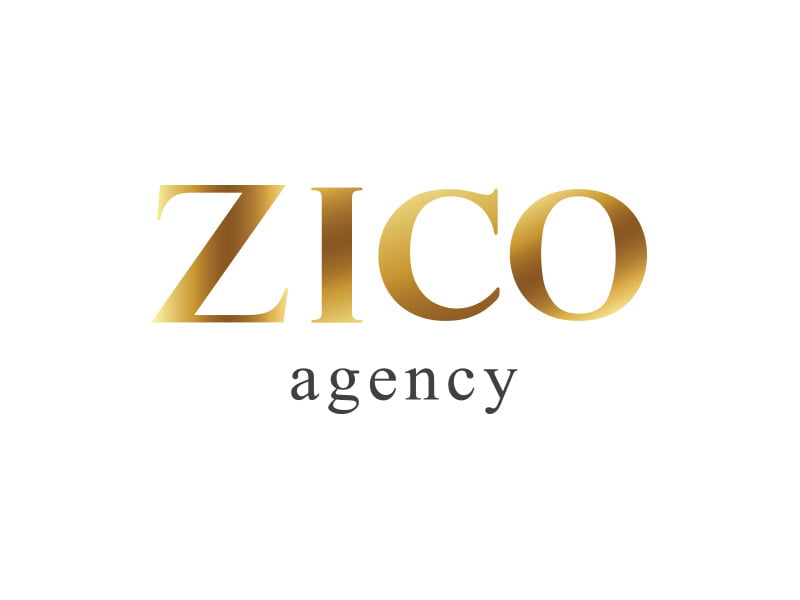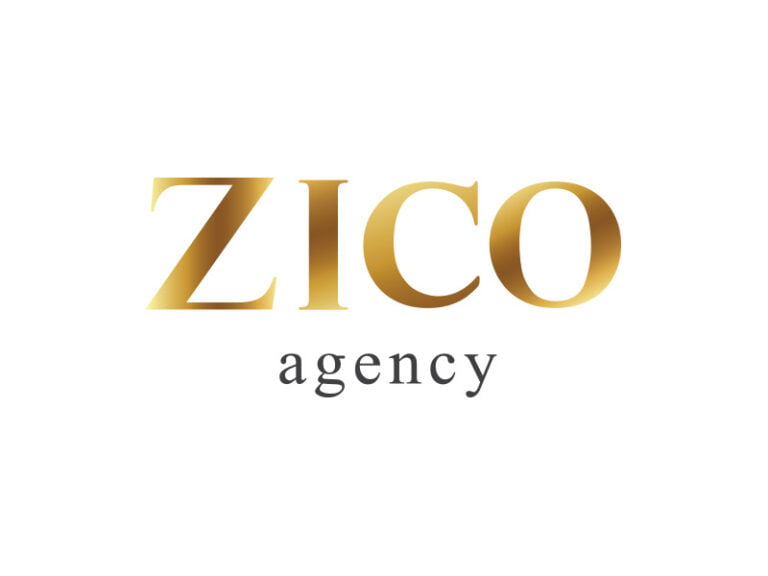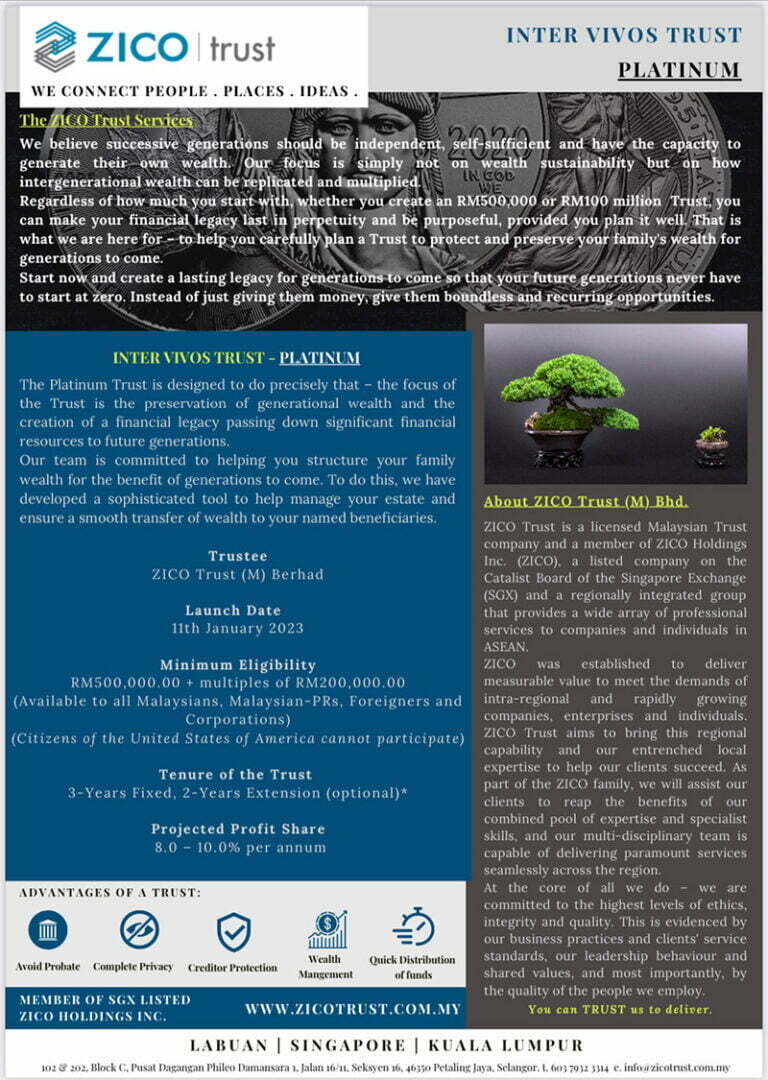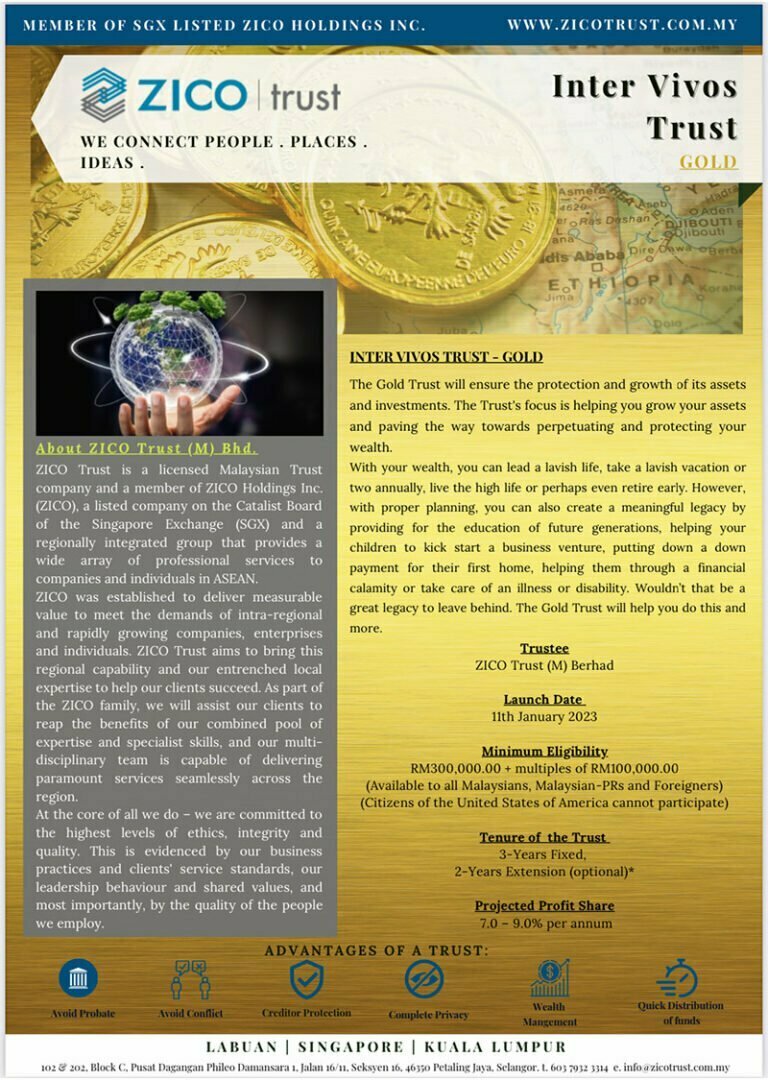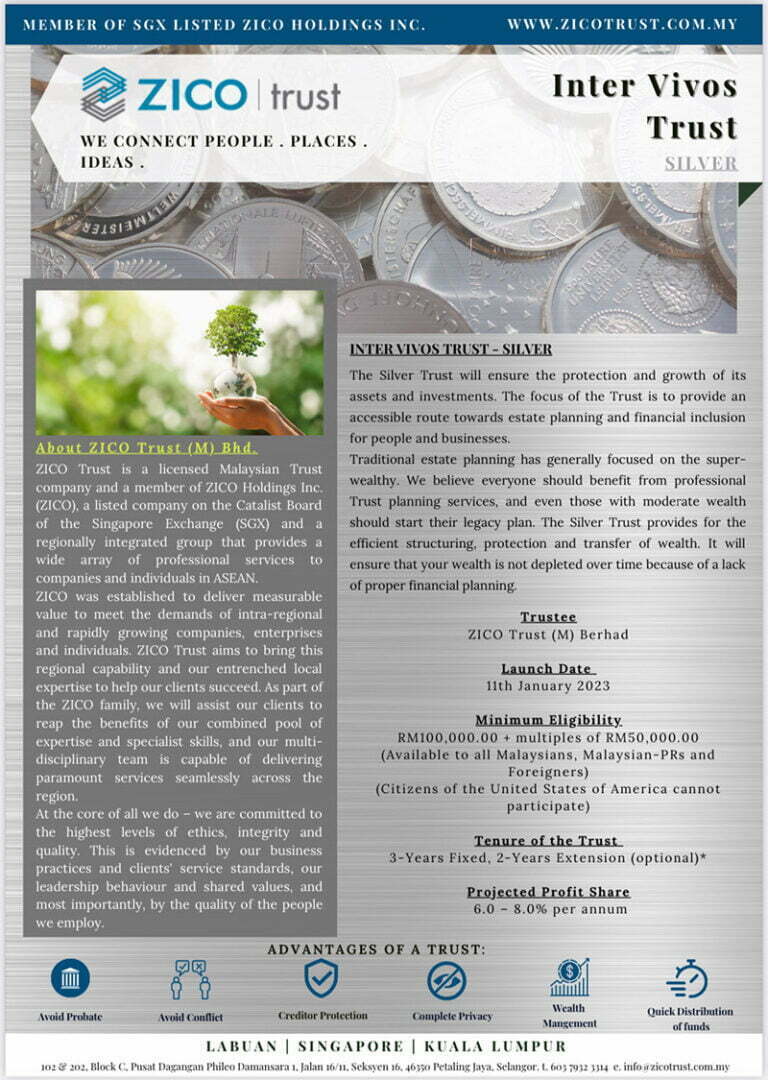A trust is an entity created to preserve and distribute one’s wealth.
In contrast to conventional belief, trust is no longer a financial vehicle restricted to the ultra-rich. Today, it is increasingly popular for the masses to set up a trust to protect their finances. This increase is attributable to our nation’s continuous growth in both income and wealth levels over time.
To understand how a trust works, we need to first acknowledge the four parties involved in setting up a trust. The four parties include:
1. The Settlor / Donor
The settlor refers to the person who sets up a trust.
2. The Assets
These may include, but not limited to, cash, shares, real estate, and many other collectibles such as jewelries, coins, artworks, watches, precious metals and the list goes on.
3. The Beneficiaries
The settlor can choose to nominate himself, his family members (including both siblings and relatives), his friends, corporate entities, foundations, charities and religious organizations that he wants to support as the beneficiaries of his trust.
4. The Trustee
The trustee could either be an individual person or a trust company. Basically, it is tasked to conserve, manage and distribute the assets entrusted by the settlor for the benefits of the trust’s beneficiaries. The trustee appointed shall manage these assets in accordance with the clauses as stipulated in the trust deed.
In brief, a trust deed is a document which states the settlor’s wishes, intentions, and instructions on how the trust’s assets are to be administered by the trustee throughout the tenure of the trust.
Putting Them Together
Essentially, here is how a trust is created.
The settlor places his personal assets into the trust. He prepares the trust deed, which offers instructions on how these assets are to be managed by the trustee appointed. Also, the settlor nominates his intended beneficiaries of the trust. In this set up, it shall involve a transfer in legal ownership of these assets from the settlor to the trust.
Hence, this will enhance asset protection and offer greater asset privacy for the settlor.

